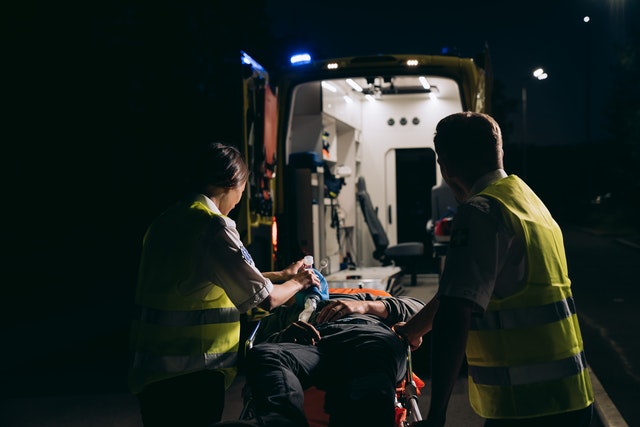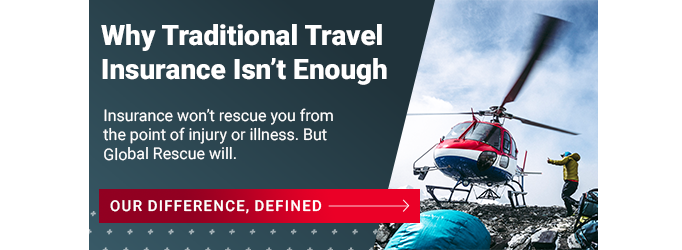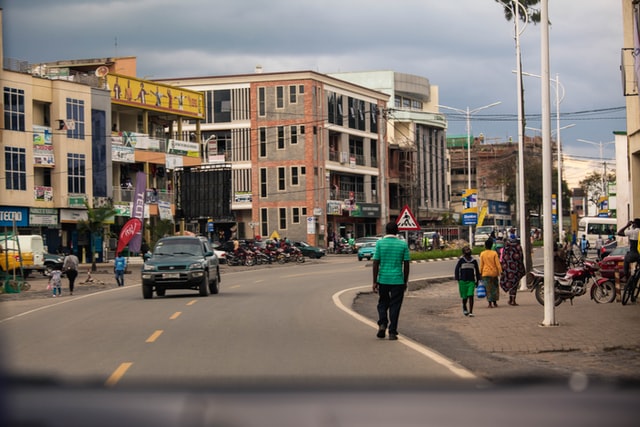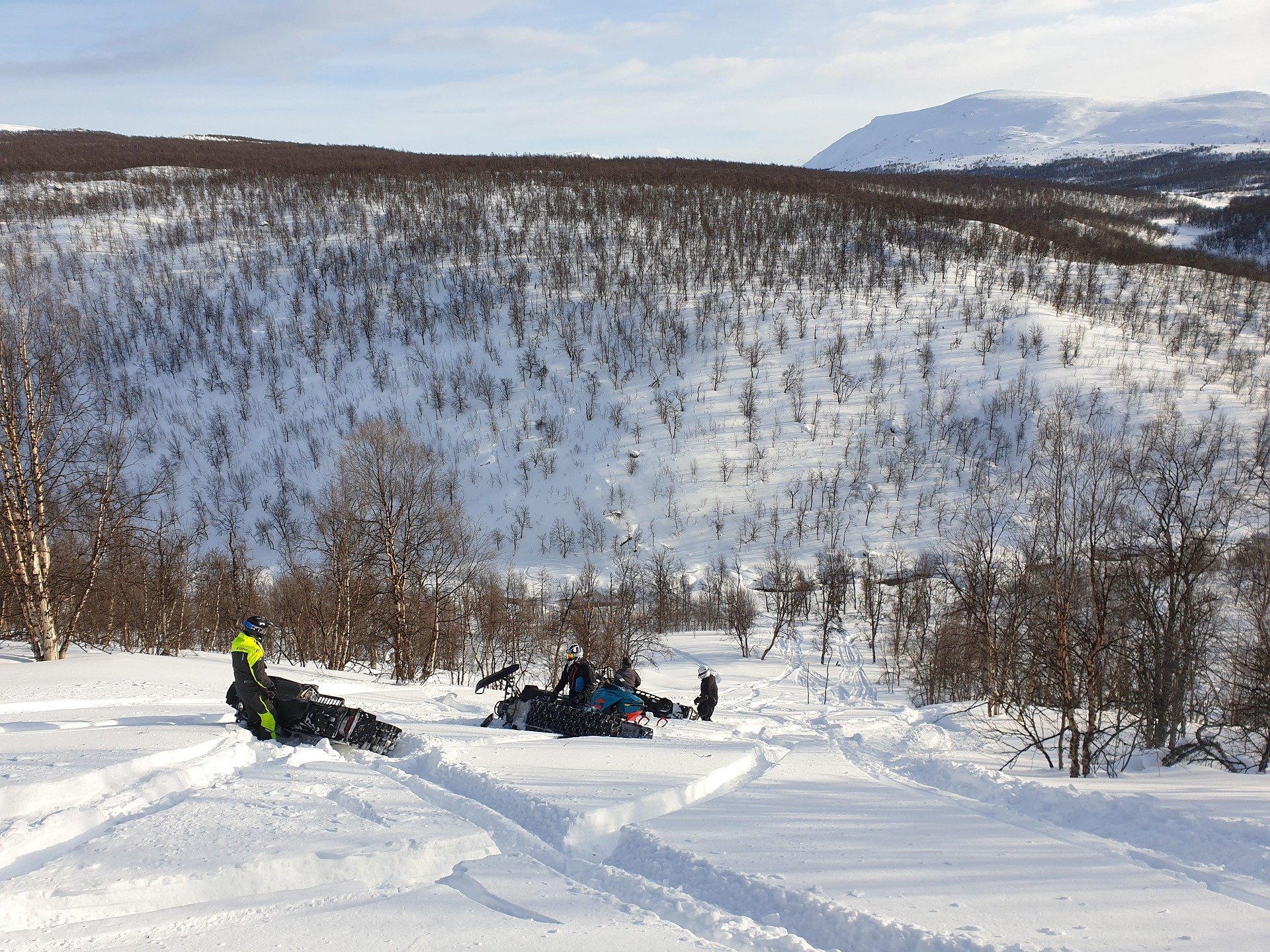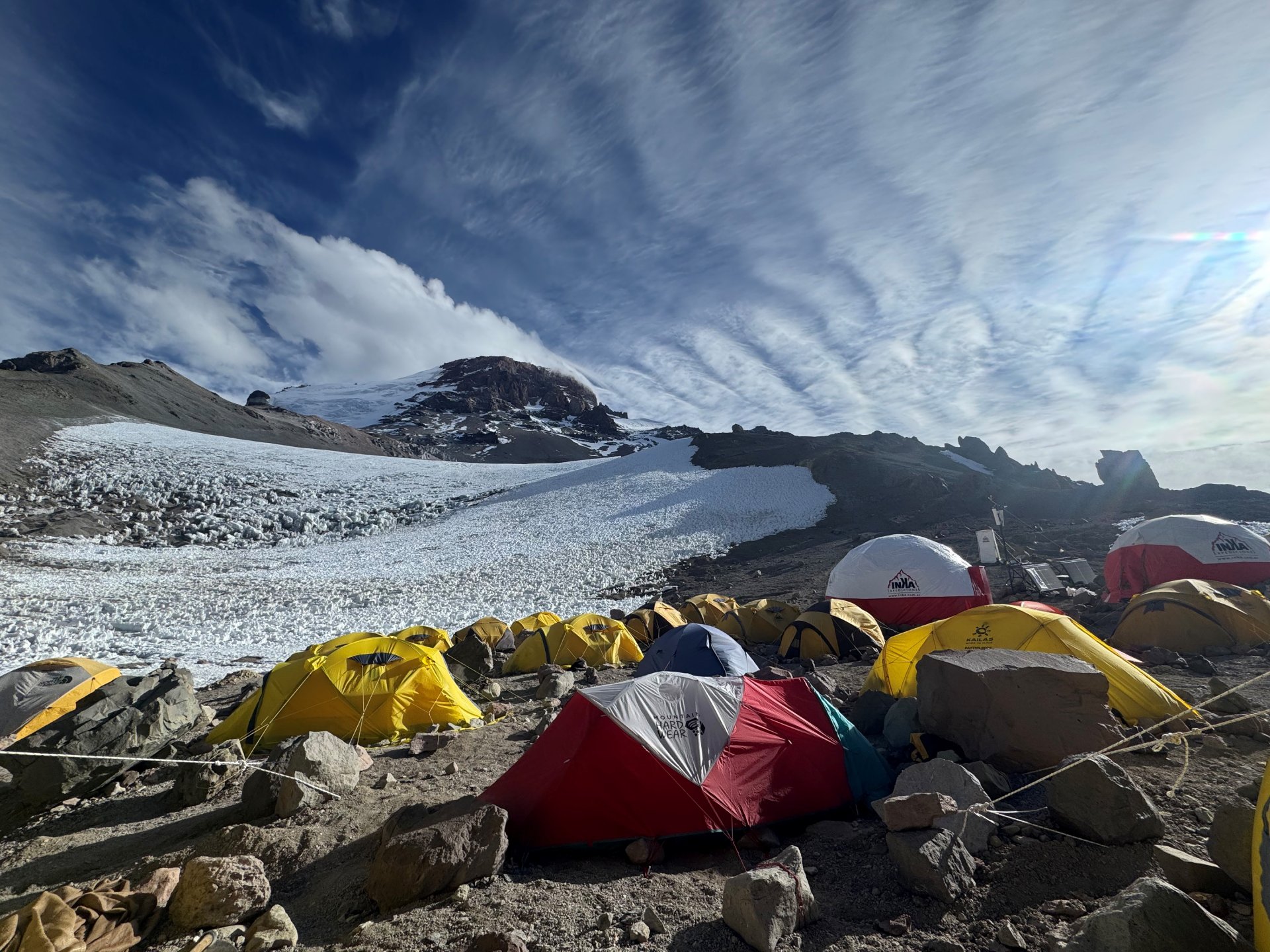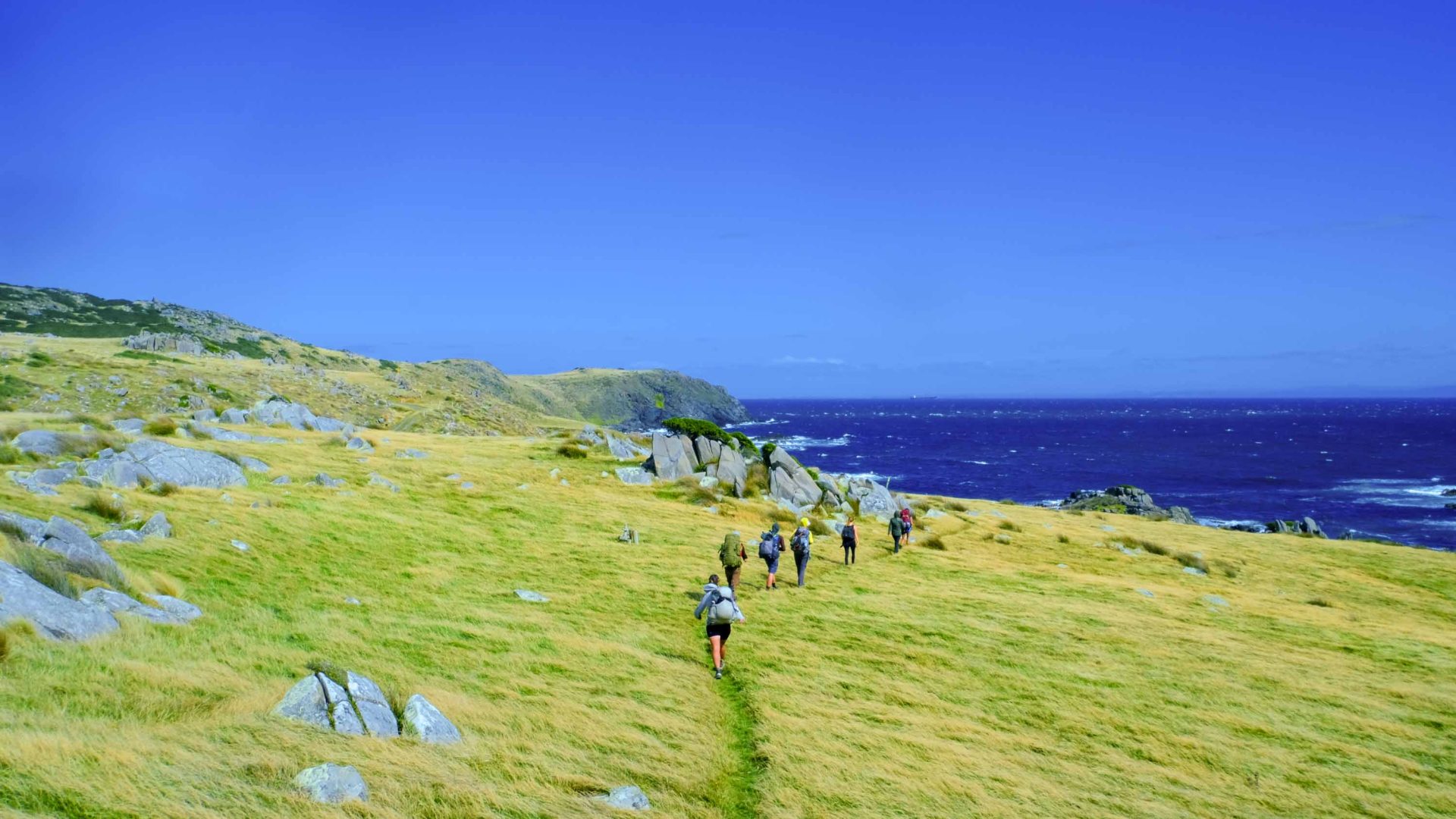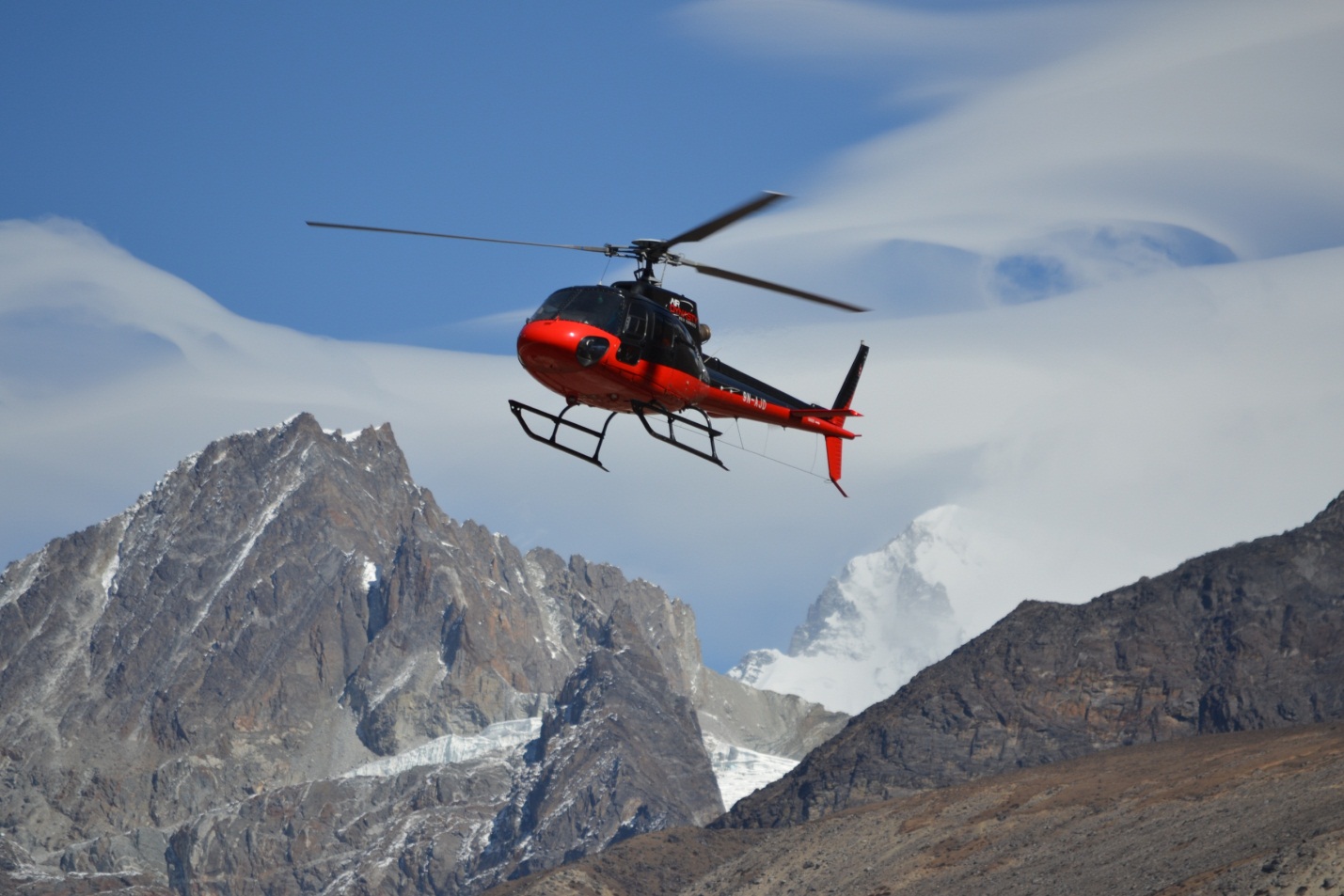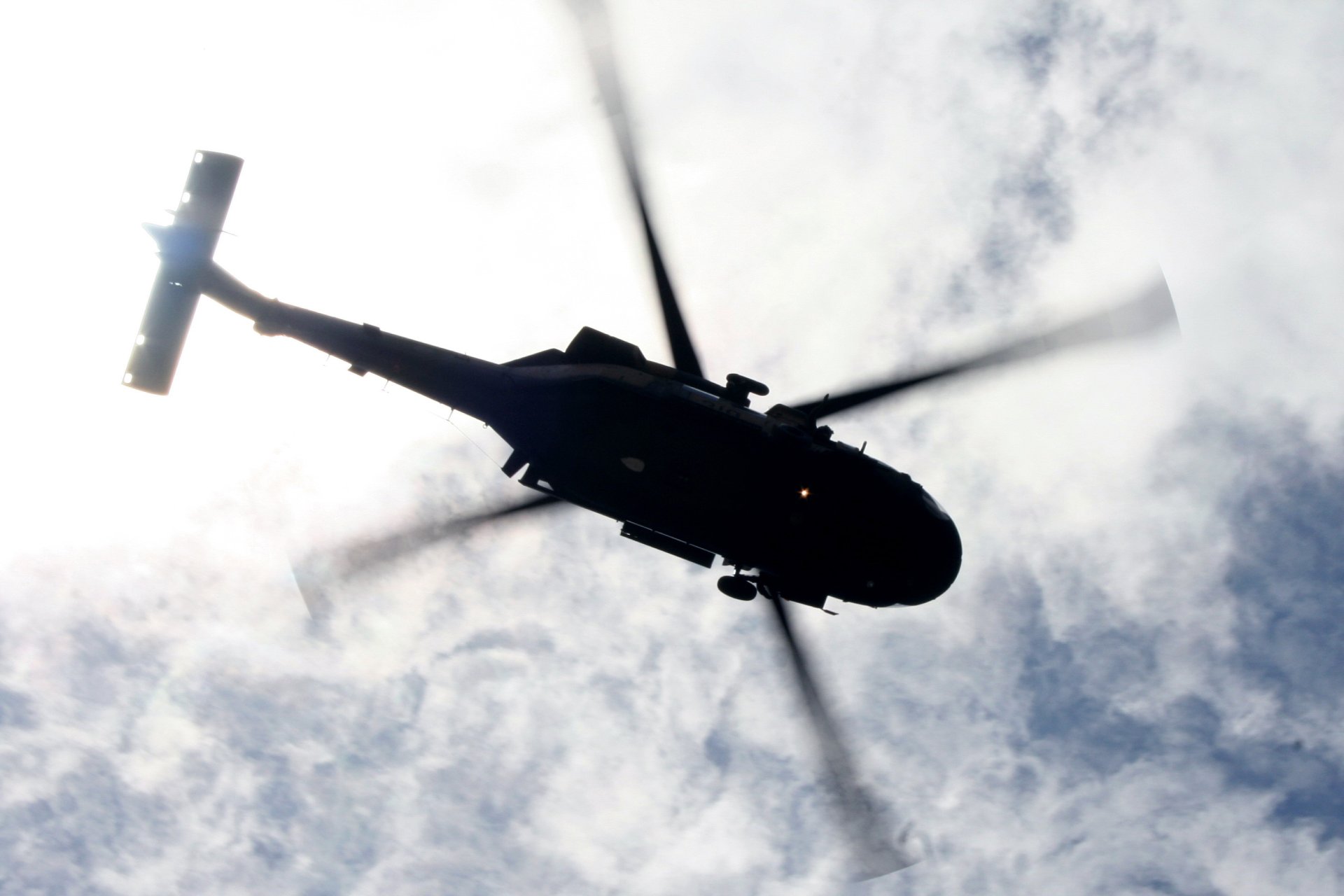April was a busy month for field rescues and medical evacuations for Global Rescue — so busy we split our Mission Briefs into two parts. The first brief was focused on the Himalayas; this mission brief highlights some of our recent operations in other parts of the world.
Today’s travel includes a new threat matrix: pandemics, staffing shortages and flight cancellations, civil unrest and natural disasters. The traveler mindset made a tectonic shift, moving travel protection for emergency medical services and evacuation from “optional” to “obligatory.” Most travelers learned the limitations of traditional travel insurance and the value of stand-alone medical assistance and evacuation safety nets.
Travelers also learned the beauty and convenience of local travel and exploration. The pandemic increased everyone’s recognition and admiration of nearby wilderness and local remote areas, and the masses flowed into the outdoors. Outside activity worldwide is reaching unprecedented heights of participation as travelers learn to take advantage of local, outdoor activities.
[Related Reading: Mission Briefs April – The Himalayas Special Edition]
Global Rescue continues to answer the needs of travelers at home and abroad without any disruption of service. In a typical 30-day period, Global Rescue executes hundreds of operations in dozens of countries and principalities. Below are highlights from some of our most recent operations in various locations.
Botswana: Seizures in the Wilderness
A member from New York experienced seizure-like episodes while in a remote location in Botswana. At one point the member lost consciousness and later complained of severe abdominal pain and weakness. Fortunately, the member was traveling with a paramedic who helped get the member and his family to a medical facility in Kasane where he was evaluated and admitted to the ICU. The Global Rescue medical operations team was contacted and, after reviewing the medical records and reports, recommended an immediate medical evacuation to a hospital capable of a higher level of care. The member was transferred to a hospital in Johannesburg, South Africa, where he was admitted into the ICU, treated and discharged to his hotel to continue his recovery. Several days later, the member was cleared fit to fly home via commercial airline in a business class seat without a medical or non-medical escort required. The member arrived home safely without incident.
The Bahamas: Seizures at Sea
It was late afternoon when a member who was fishing on a boat in Acklins, Bahamas experienced sudden weakness on his right side. He was examined in nearby Chester Bay by a nurse but there was no physician available on the island. Global Rescue was contacted and able to review the information provided by the nurse and quickly determined that a medical evacuation to a hospital capable of a high level of care was needed. An airborne medevac transported the member from Acklins to a hospital in Nassau where the member was evaluated, received a CT head scan and underwent blood tests. The treating physician reviewed the test results and cleared the member fit to fly home for continued care.
Rwanda: Blocked Intestine
A U.S. member was traveling in Rwanda when she was admitted to a hospital for an intestinal obstruction. Surgery was recommended but the member opted to undergo the procedure in the U.S. and contacted Global Rescue. The medical operations team advised against flying and recommended continuing care locally and referred the member to a local surgeon. During her post-surgical evaluation, the surgical team continued to monitor the member’s condition which improved over the next few days. Her vital signs stabilized and she started on oral fluids. She was discharged with a lay-flat seating recommendation for medical transport from Rwanda to her home in San Francisco. The member arrived home safely with no incidents.
Philippines: In-Flight Abdominal Pain
A member traveling from the U.K. to the Philippines for a travel and tourism conference experienced abdominal pain and rectal pain during a layover en route to Manila and contacted Global Rescue. After arrival, Global Rescue arranged for the member’s transport to a medical center where he was diagnosed with hemorrhoids and required surgical treatment. The member remained admitted to the hospital following his surgery until his recovery and pain were manageable and was able to pass stool comfortably without bleeding. He was discharged fit to fly after a few days and flew back to his home without incident.

